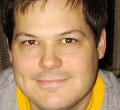
In ABC’s hit show (based on the Columbian telenovela “Yo Soy Betty La Fea”), we meet Betty Suarez, a recent college graduate from Queens College (and resident of Queens, NY) who is passionate about the publishing industry. However, several magazines (including those owned by Meade Publications) turn her down-implicitly due to her less than fashionable appearance. Betty (America Ferrera) has an outdated, frumpy style (if you want to call it that) complete with frizzy hair and overstated bangs, bushy eyebrows, outdated glasses and hard-to-miss braces.
But then a stroke of good fortune finds Betty making a huge leap from unemployed ex-intern to Mode Magazine editor-in-chief’s assistant Daniel Meade (Eric Mabius) and son of publishing mogul Bradford Meade (Alan Dale).
Turns out that the elder Meade hired Betty to keep his philandering son from temptation. She takes the revelation that it is in fact her unattractiveness that landed the big break in stride just as she does the constant teasing and ridicule from her self-absorbed co-workers.
“You are an attractive, intelligent, confident businesswoman.”
Those are the words of Betty Suarez just before entering her first meeting as an employee of fictional fashion magazine Mode. Because she was filling out paperwork, she’s running late and haphazardly walks right into the glass door-an unfortunate mishap that gives the others a good laugh.
Things go from bad to worse when a fashion photographer convinces Daniel he should make life tough on Betty so she’ll quit (since he can’t fire her). He says he loves coleslaw but hates cabbage and asks her to bring him coleslaw without the main ingredient. He makes her pick the gum off his shoes. He makes her serve as a lookout for multiple gorgeous women who take turns gracing his posh condo which in turn causes her to miss her father’s birthday party. Daniel nearly gets his wish when he asks Betty to stand in for a model while wearing a ridiculous outfit.
But ultimately, Betty saves the day by presenting an ad campaign concept that keeps an important client from taking her business elsewhere. This becomes a running theme from one episode to the next and the show’s central figure endears herself to the boss and eventually many of the company’s employees.
The concept of true beauty-outward versus inward-is quickly established as the overarching message found in “Ugly Betty.” Not only does this play out at the workplace, but the idea also finds its way into Betty’s home life where she lives in a modest Queens home with her always optimistic father Ignacio (Tony Plana), her older (and much more attractive) sister Hilda (Ana Ortiz) and her nephew Justin (Mark Indelicato).
Betty’s relationship with her sister Hilda is especially intriguing. The much more attractive Hilda sells a health product called Herbalux and dresses semi-provocatively. She later opens her own hair salon and has no problem with assertiveness. Betty, on the other hand, is awkward, backward and plain. Despite that fact, it is revealed early on in the series that Ignacio has a special fondness for his younger daughter even though he does his best to hide it.
In many ways, their story is similar to the Old Testament patriarch Laban and his daughters Leah and Rachel (see Genesis 29). The two competed for the affection of their father and eventually for the affection of the same man, Jacob, to who both were married (largely in part to Laban’s deception and favoritism towards Leah). To make matters worse, Leah’s name means “cow” in Hebrew while Rachel’s name means “ewe” or sheep (arguably the most beloved Bible creature).
But strangely, it was Leah who was ultimately more successful than Rachel. She was able to bear children while her sibling was not. This caused Jacob to love Leah more than Rachel despite the difference in physical attractiveness.
With the exception of birth order, Betty is much like Leah, the less attractive sister while Hilda could be compared to the more desirable Rachel. Yet Betty somehow found her way into the highly competitive world of fashion media and became an influential (though at times, still disregarded) player.
The concept of parental favoritism also pops up within the wealthy Meade family where Bradford Meade constantly compares his son Daniel to presumed dead brother Alex. Later in the series, we learn that Alex actually faked his death in order to undergo a sex change and become Alexis (Rebecca Romijn). Strangely, while Betty tries to prove herself to the hipsters at Mode, she finds solace in Daniel who is trying to prove himself to his doubting father.
The Leah-Rachel analogy also carries over to Betty’s workplace where various characters such as Mode receptionist Amanda Tanen (Becki Newton) and season three’s introduction of former high school nemesis Kimmie Keega (Lindsay Lohan) are far more attractive but in the end fall short of Betty’s accomplishments due to their vindictive, scheming ways.
As it turns out, Jesus’ words in Matthew 23:27 ring true quite often in “Ugly Betty:”
“Woe to you, teachers of the law and Pharisees, you hypocrites!” He tells His critics. “You are like whitewashed tombs, which look beautiful on the outside but on the inside are full of dead men’s bones and everything unclean.”
In the third season’s sixth episode, the power-hungry fashion diva Wilhelmina Slater (Vanessa Williams) gives rare kudos to Betty whose idea lands a coveted supermodel for the cover. “That’s initiative people,” she tells the jealous editorial staff. “Sometimes it comes in unlikely brown packages.”
Slater’s backhanded compliment strangely lines up with what God reminded Samuel as he began his search for the next King of Israel. In 1 Samuel 16:7, He said, “The LORD does not look at the things man looks at. Man looks at the outward appearance, but the LORD looks at the heart.”
Of course, that search resulted in the unlikely coronation of a shepherd boy named David and proved that, like the lead character in “Ugly Betty,” greatness can’t always be judged by outward appearance and in fact is always a product of the condition and quality of one’s inward character and heart.
And for the rest of us average, non-descript dreamers of the world, that should be great news.
Chad Bonham is a freelance author, journalist and television and documentary producer from Broken Arrow, Okla. He is the author of a four-book FCA series (Regal Books) and is the coordinating producer on a forthcoming documentary called Choosing Life.







Leave a Comment
You must be logged in to post a comment.